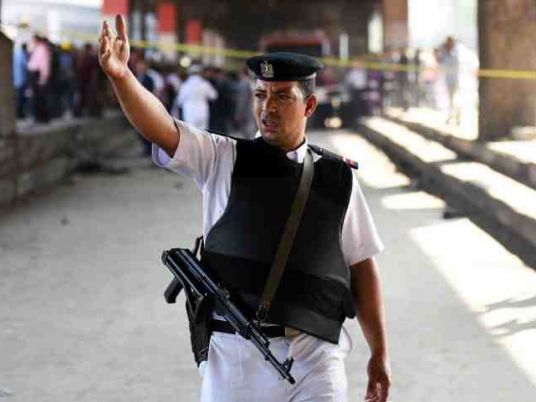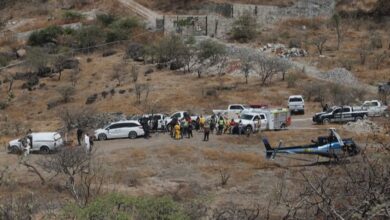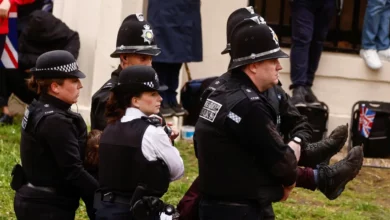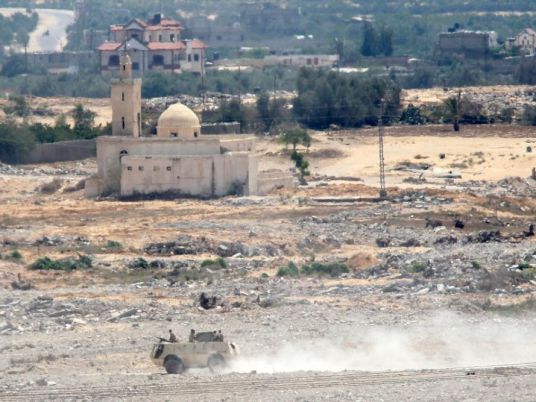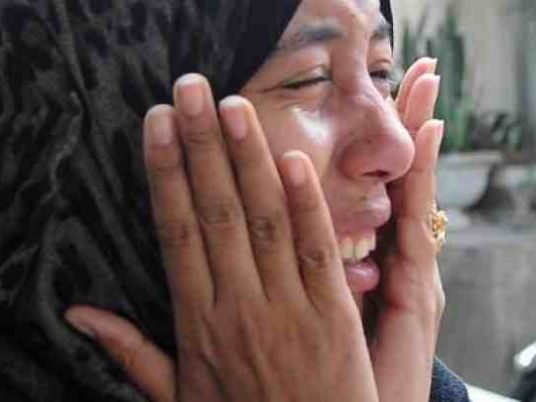
Images of a slain protester, blood running down her face and hair as her body was lifted from the ground, have touched off powerful criticism of Egypt's government on the anniversary of a revolution initially sparked by police brutality.
The photos and videos show a heavily armed police unit, with some members masked, shooting at a small, peaceful protest Saturday near Cairo's Tahrir Square in which 32-year-old Shaimaa el-Sabbagh took part.
A labor rights activist with a history of involvement in protests that predated the country's 2011 revolution, el-Sabbagh was also a poet and mother of a 5-year-old boy.
She had traveled to Cairo from her home in Alexandria to attend the demonstration to demand police and officials be held accountable for protesters killed since the uprising four years ago that forced autocrat Hosni Mubarak from power.
She was killed by what authorities said was a blast of birdshot that pierced her heart and lungs from close range.
"I won't listen to anyone who undermines my resolve," she wrote on her Facebook page Saturday before taking part in the protest, saying she wouldn't pay attention to those who think there is no point in protesting anymore.
Mahienour el-Masry, an activist and friend of el-Sabbagh's, described her as a firm believer in change who used to take her son along with her.
"She really had her heart in it," el-Masry said.
Her death renewed criticism of police use of force and the government's insistence that its crackdown is reserved for terrorists and violent protesters.
A new page has already appeared on Facebook in her memory – a reminder of a similar page honoring Khaled Said, a young Alexandria man beaten to death by police agents in 2010. That page drew millions of followers and became one of the main engines for organizing the 2011 anti-Mubarak uprising in Tahrir Square.
A cartoonist, Makhlouf, drew a cartoon dedicated to el-Sabbagh showing a flower confronting the barrel of a gun.
"People were very sympathetic when they learned" of el-Sabbagh's death, said El-Masry, el-Sabbagh's friend. She added: "When they kill a woman with flowers among about 30 protesters, it is clear that the regime … is only protecting itself."
El-Sabbagh's funeral Sunday in Alexandria drew hundreds, many chanting, "Down with military rule" – a slogan President Abdel Fattah el-Sissi, the former military chief elected to office in May, has said he will no longer tolerate. After her burial, mourners likened el-Sissi to Mubarak, chanting, "Down with el-Sissi Mubarak."
"Her only crime is that she went to lay a wreath of flowers on the memorial of the martyrs in Tahrir. She then joined them," Medhat al-Zahed, the acting head of the Popular Alliance Party, of which el-Sabbagh was a member, told reporters. He directly accused the police of killing her.
Security officials have sought to distance themselves from her death, saying that they only used tear gas against the protest and that violent elements infiltrate rallies to "drive a wedge" between the people and the police.
During scattered small protests on Sunday, at least 13 protesters were killed in clashes in which police said they were attacked.
The Popular Alliance Party was one of the supporters of the military's overthrow of Islamist President Mohammed Morsi in 2013. Ever since, a security crackdown on Islamists has left hundreds killed and thousands in jail.
The death on Friday of a 17-year-old girl taking part in an Islamist protest also fueled the criticism that security forces are using indiscriminate violence to suppress dissent.
Icons here in the past years have either propelled a new wave of dissent or were targeted by authorities. A prosecutor ordered a quick investigation as videos and images of el-Sabbagh killing spread, but detained witnesses to her death, accusing them of protesting.
Only days before el-Sabbagh's death, el-Sissi spoke at a police academy, acknowledging that there have been mistakes committed by security forces but said they were a result of exceptional circumstances during the government's war on terror. He blasted protesters as a reason for continued instability.
"Don't take us down with you!" he screamed.

